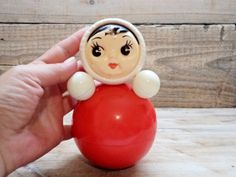
School is back and activities have officially begun.
“Let’s go,” I say. “The coach is waiting for you.”
“No mom. I don’t want to play soccer,” she says back.
“But. But, you told me you did!” I reply, feeling frustrated. “Your friends are there”. “You told me you’d play if your friends were there.”
No answer. And then another “No.” “I don’t like soccer.”
It is a familiar scene. Another activity, another tepid response.
I am torn between my desire to help her find enjoyment in the game, or to step back and let her be. My experience tells me that next week will be a replay of today, unless I somehow get involved. Which unlikely parenting trick might work? Bribery? Threats? Begging? Joining the group of 5 year-olds myself? What will motivate her to try?
Trying, I tell her, is what it’s all about. If you don’t try, then how do you know whether you like it or not. How will you ever find your passion??
It is irrelevant, I tell myself later when I am rational again. It’s only kindergarten soccer.
But I so desperately want her to do it. I don’t want her to give up just yet. I want her to discover her “thing”. Perhaps, given enough external motivation, she’ll change her mind. She’ll join next week and she’ll miraculously find her inner Beckham. All that she needs is to have one successful play.
I think back to the Olympic Games we watched together this past August. For hours, we tracked my favorite swimming events, and then the women’s gymnastics. We shouted and rooted when our favorite athletes raced, competed, and won. Phelps. Ledecky. Raisman. Biles. I even got emotional and cried, happy, proud and excited for them and for our country, as we watched them standing on the podium, gold medals around their neck – a crowning achievement of their love, blood, sweat and tears.
How were they able to pass on their joy to us so effortlessly?
After the Olympics were over, I watched a couple interviews with Phelps, about his swimming journey and his upcoming retirement. How did he feel about his career, about retiring from swimming? What did he see in his future?
“It’s amazing, [he said], to think about the amount of races, the amount of medals, because it just started as a dream.” “I had a goal of wanting to be on a national team, wanting to be an Olympian, and that was my goal. And I just worked towards it year after year.” “Drowning rates continue to be high, and we want to teach kids, we have a full schedule. I still have goals.”
His clarity of purpose is inspiring. It comes from somewhere deep. A place of peace and vision that over the many years has clearly not been disturbed by the herculean challenges of becoming and remaining the world’s best and most decorated swimmer.
Was this what he was like when he was just at the beginning of his swimming journey? Curious, I go on-line and dig up an interview with Phelps when he was just 15. It’s from 2001, before he won his first gold medal. It is an old, unedited tape, an amateur video, and I can barely hear the voice of the interviewer. But Phelps’ voice is clear. He says,
“I am getting better at fly. My freestyle is better, my IM. I have goals for myself. I want to do everything that I can to do my best.” “My long term goal is to win one gold medal in Athens. I just want to take it day-by-day.”
Even at 15, he seems at once so enviably mature in his clarity of vision, and yet like just another kid taking small steps to get better at his chosen sport.
Back in our own universe, I am now standing in a basement gym. My daughter is wearing a glittery green leotard, about to enter the gymnasium for the first time with 20 other excited brightly clad girls. Next minute, they are inside, and I am behind the glass window, able to see but not hear what happens on the other side.
The coaches line up the girls, my daughter next to her friends. And then I see the tears steaming down. But they are not my daughter’s. Her friend, scared and crying, backs away and sits down on the mat. But not for long. My little girl and her other friends rush over and give their scared friend a giant hug. And then they are off, jumping, rolling over, bouncing on the trampoline, and climbing the balance beam.
An hour later, the doors open, and I see my girl.
“How was it?” I say.
“I love gymnastics!” she says back.
In the car, on the way home, out of the blue, my daughter chimes from the backseat, “I told you mom.” “Told me what?” I say. “I told you I’d love gymnastics,” she says. And I think back to last year, when I asked her what she wanted to do this year instead of ballet. And she told me, “I want to take gymnastics.”





 RSS Feed
RSS Feed